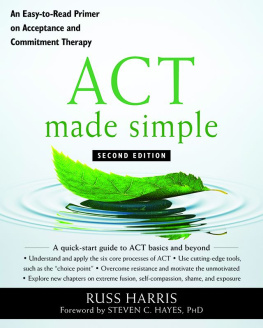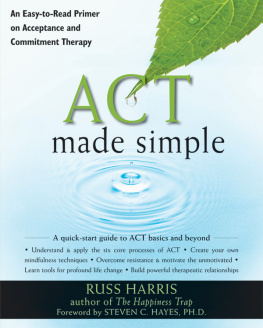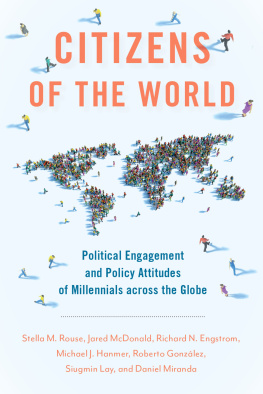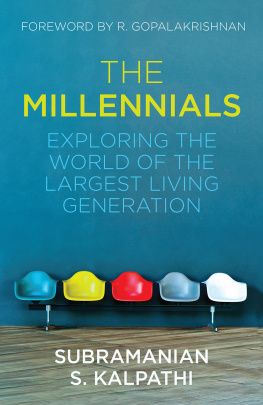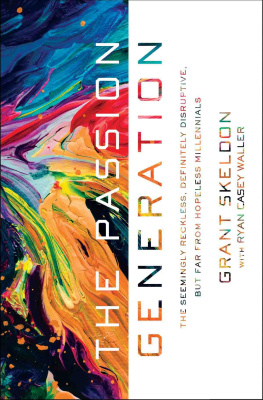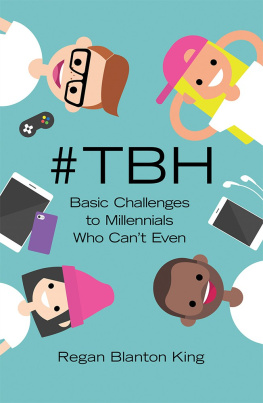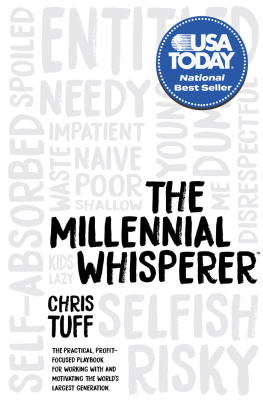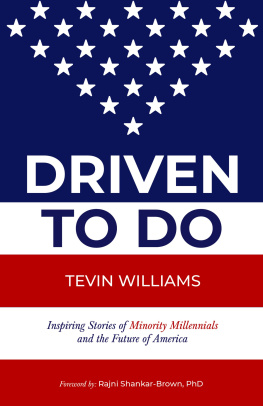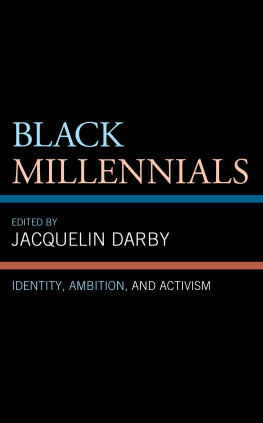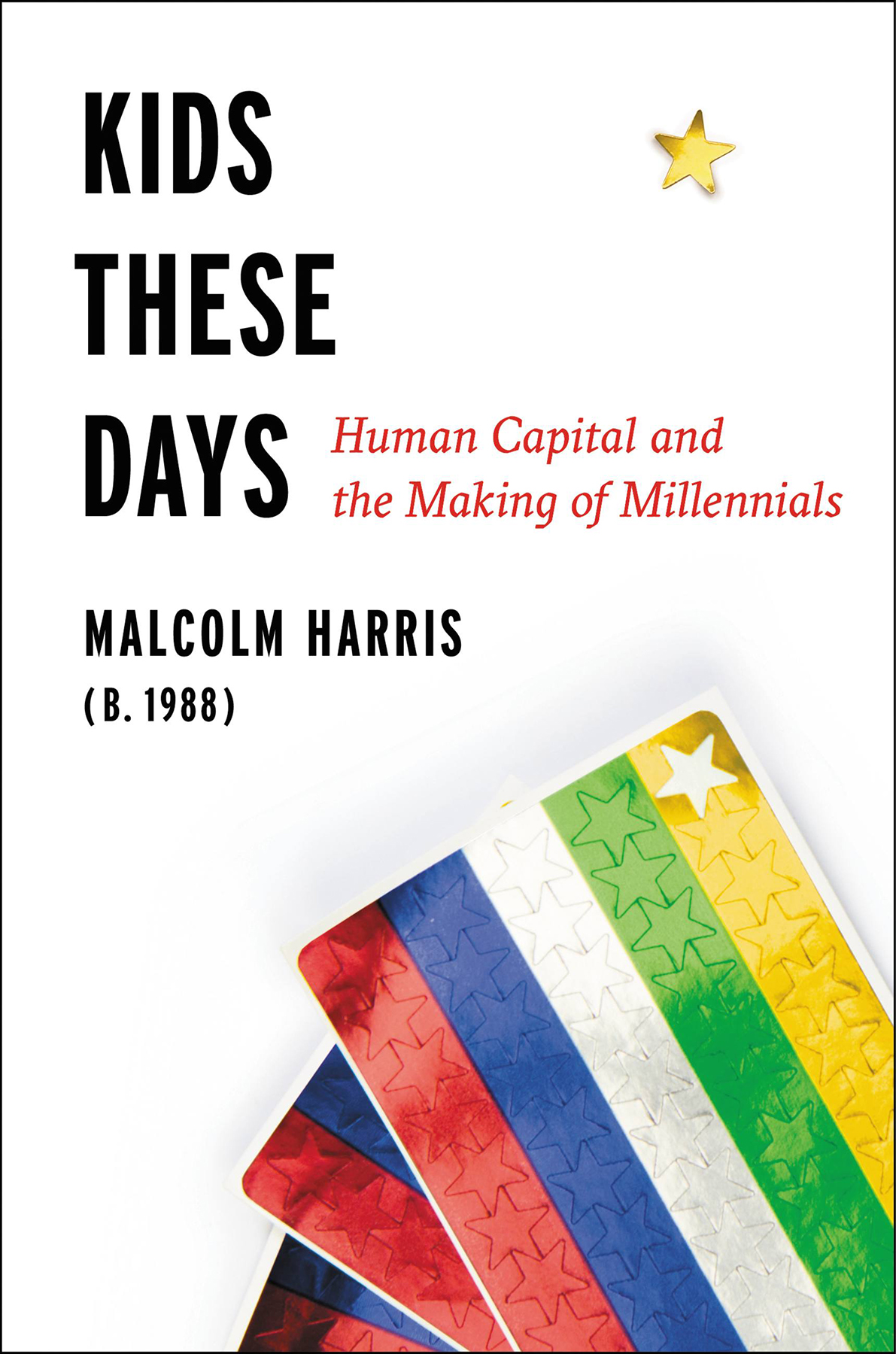Thank you for buying this ebook, published by HachetteDigital.
To receive special offers, bonus content, and news about ourlatest ebooks and apps, sign up for our newsletters.
The characters and events in this book are fictitious. Any similarity to real persons, living or dead, is coincidental and not intended by the author.
Copyright 2017 by Malcolm Harris
Cover design and photograph by Lauren Harms
Cover copyright 2017 by Hachette Book Group, Inc.
Hachette Book Group supports the right to free expression and the value of copyright. The purpose of copyright is to encourage writers and artists to produce the creative works that enrich our culture.
The scanning, uploading, and distribution of this book without permission is a theft of the authors intellectual property. If you would like permission to use material from the book (other than for review purposes), please contact permissions@hbgusa.com.
Little, Brown and Company
Hachette Book Group
1290 Avenue of the Americas, New York, NY 10104
littlebrown.com
twitter.com/littlebrown
facebook.com/littlebrownandcompany
First ebook edition: November 2017
Little, Brown and Company is a division of Hachette Book Group, Inc. The Little, Brown name and logo are trademarks of Hachette Book Group, Inc.
The publisher is not responsible for websites (or their content) that are not owned by the publisher.
The Hachette Speakers Bureau provides a wide range of authors for speaking events. To find out more, go to hachettespeakersbureau.com or call (866) 376-6591.
ISBN 978-0-316-51087-5
E3-20170926-JV-PC
For Lee, Tal, Ben, Annes, Steven, and Clark
What is a generation? We talk as if they have breaks between them, like graham crackers or Hershey bars. But people dont couple and have children on a staggered schedule; theres a constant flow of newborns, with no natural divisions between Generations X, Y, and Z. What is it, then, that distinguishes someone born in one generation from someone born in the next? Is there a last baby on one side and a first on the other? Maybe its like the Supreme Court on pornography: We know it when we see it. At its most basic level, a generation is when a quantitative change (birth year) comes to refer to a qualitative change. Over time a society mutates, and at a certain point in that development we draw a hazy line to mark a generation.
Since they arent strictly defined, generations are characterized by crises, by breaks of one kind or another. Wars, revolutions, market crashes, shifts in the mode of production, transformations in social relations: These are the things generations are made of, even if we can only see their true shape in the rearview mirror. Every few decades American culture turns over, like a body rejuvenating its cells. But though reproduction is continual, the generations look at each other not over a line, but over a gap. The divisions are very real, even as theyre also imaginary.
Because the way generations are defined is so hazy, its easy to get away with less-than-rigorous analysis. If you say the Selfie Generation, youre doing the work of defining and describing: The generation that takes selfies takes selfies. The few book-length considerations of Millennialsfor our purposes I will mostly use this term to refer to Americans born between 1980 and 2000 (Reagan up to Bush II)that exist are generally concerned with two things: young peoples intellectual degradation, and how to manage them in the workplace. Shorter-form articles hem and haw about young Americans romantic and sexual lives, our work ethic (or lack thereof), and especially our use of technology and the culture that has developed around it. Millennial stereotypes are just that, however, and stereotypes arent a good place to start.
What these media accounts fail to present, even when their conclusions dont totally miss the mark, is a historical reason for what theyre describing. To understand the consequences of a generational shift, we need more than just the proximate causes of new culture and behavior; we have to pull apart the tangled nest of historical trends where they hatched.
No one chooses the historical circumstances of their birth. If Millennials are different in one way or another, its not because were more (or less) evolved than our parents or grandparents; its because theyve changed the world in ways that have produced people like us. And we didnt happen by accident: Over the past forty years we have witnessed an accelerated and historically unprecedented pace of change as capitalism emerged as the single dominant mode of organizing society. Its a system based on speed, and the speed is always increasing. Capitalism changes lives for the same reason people breathe: It has to in order to survive. Lately, this system has started to hyperventilate: Its desperate to find anything that hasnt yet been reengineered to maximize profit, and then it makes those changes as quickly as possible. The rate of change is visibly unsustainable. The profiteers call this process disruption, while commentators on the left generally call it neoliberalism or late capitalism. Millennials know it better as the world, or America, or Everything. And Everything sucks.
The growth of growth requires a different kind of person, one whose abilities, skills, emotions, and even sleep schedule are in sync with their role in the economy. We hear a sweetened version of this fact whenever politicians talk about preparing young people for the twenty-first-century labor market, and a slightly more sinister version from police officers and guidance counselors when they talk about working hard, flying right, and not making mistakes. Its tough love, and young Americans are getting it from all sides. This advice is uncontroversial on its face, but its implications are profound. In order to fully recognize the scope of these changes, we need to think about young people the way industry and the government already do: as investments, productive machinery, human capital. If people have changed as much as other engines of productivity have over the past three or four decades, its no wonder the generation gap is so significant.
By investigating the historical circumstances out of which Millennials have emerged, we can start to understand not only why we are the way we are, but in whose interests it is that we exist this way. In the wake of Occupy Wall Street, the mainstream media seems to have discovered increasing economic inequality, dramatized in the vastly unequal division of postcrisis recovery income. When it comes to age, this inequality manifests both between and within generations. Young households trail further behind in wealth than ever before, and while a small number of hotshot finance pros and app developers rake in big bucks (and big resentment), wages have stagnated and unemployment increased for the rest.
In the shadow of this high-stakes rat race, child-rearing has gone from harm prevention to risk elimination. Its no longer enough to graduate a kid from high school in one piece; if an American parent wants to give their child a chance at success, they cant take any chances. Entire industries have sprung up to prey on this anxiety, from Baby Einstein to test prep academies. For children born on the wrong side of the inequality gap, an increasingly integrated youth control complex puts them at constant risk of criminalization, from the classroom to the street to their bedrooms. The result is a generation of children with an unprecedented lack of unsupervised time who have been systematically denied the chance to build selves without adult oversight.



